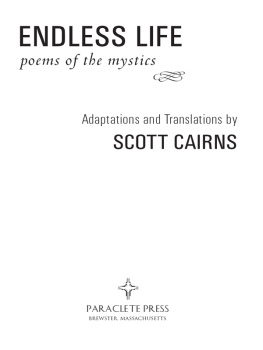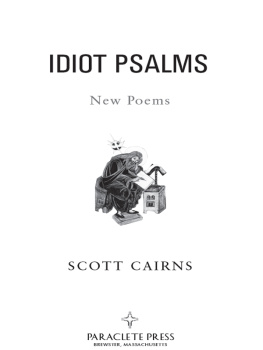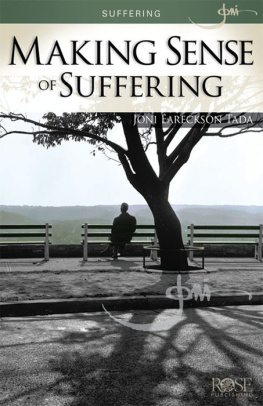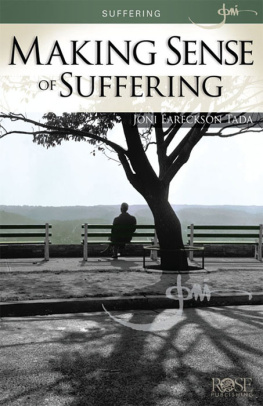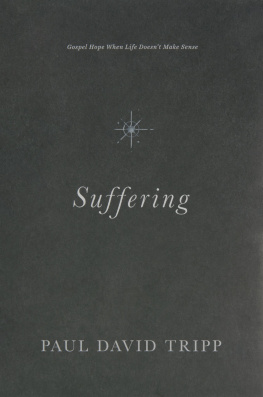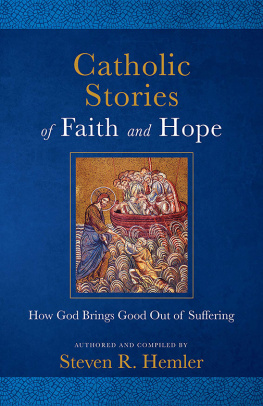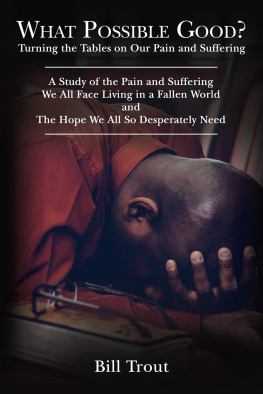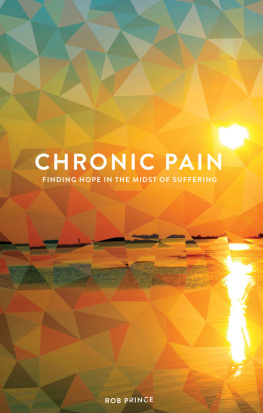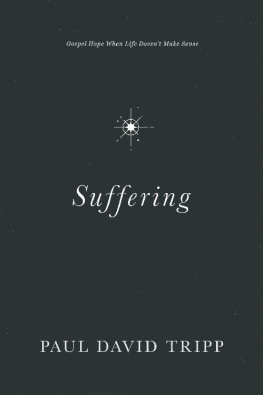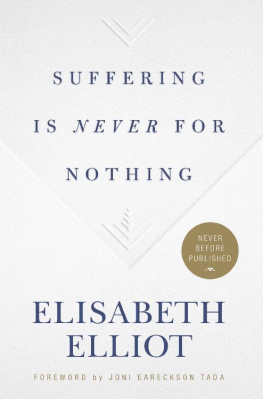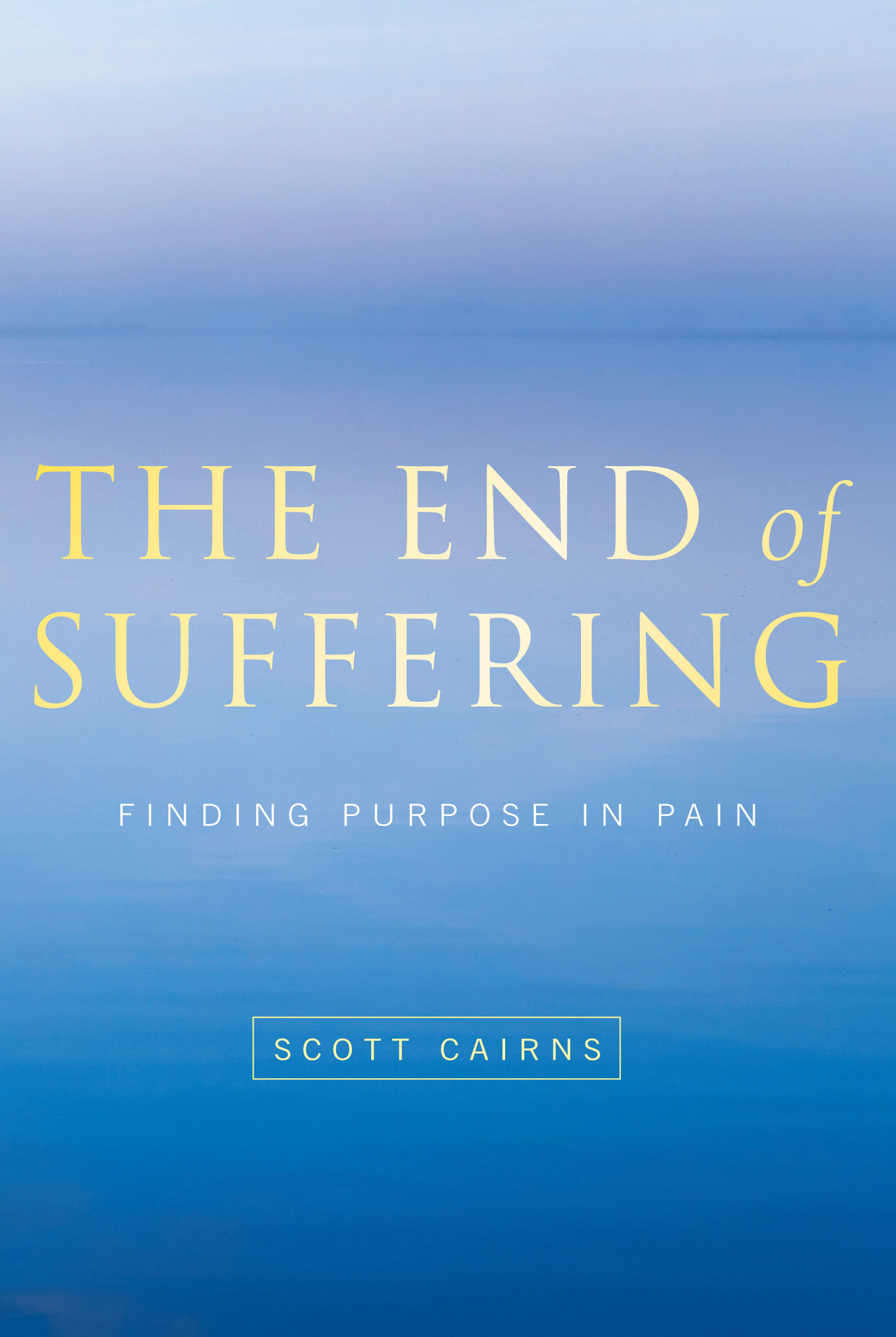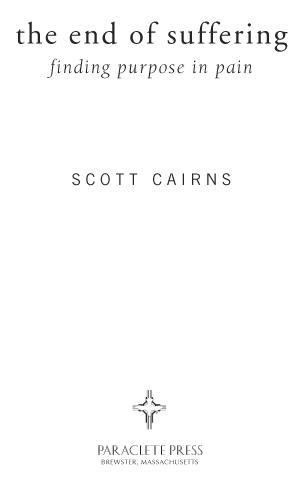The extreme greatness of Christianity lies in the fact that it does not seek a supernatural remedy for suffering, but a supernatural use for it.
- SIMONE WEIL
Like most people I, too, have been blindsided by personal grief now and again over the years. And I have an increasingly keen sense that, wherever am, someone nearby is suffering now.
For that reason, I lately have settled in to mull the matter over, gathering my troubled wits to undertake a difficult essay, more like what we used to call an assay, really- an earnest inquiry. I am thinking of it just now as a study in suffering, by which I hope to find some sense in affliction, hoping- just as I have come to hope about experience in general- to make something of it.
The End of Suffering: Finding Purpose in Pain
2009 First Printing
Copyright 2009 by Scott Cairns
ISBN 978-1-55725-563-1
Scripture references from the Old Testament taken from the St. Athanasius Academy Septuagint. Copyright 2008 by St. Athanasius Academy of Orthodox Theology. Used by permission. All rights reserved.
Scripture references from the New Testament taken from the New King James Version. Copyright 1982 by Thomas Nelson, Inc. Used by permission. All rights reserved.
Library of Congress Cataloging-in-Publication Data
Cairns, Scott.
The end of suffering : finding purpose in pain / Scott Cairns.
p. cm.
Includes bibliographical references.
ISBN 978-1-55725-563-1
1. Suffering--Religious aspects--Christianity. I. Title.
BT732.7.C325 2009
231.8--dc22
2009018728
10 9 8 7 6 5 4 3 2 1
All rights reserved. No portion of this book may be reproduced, stored in an electronic retrieval system, or transmitted in any form or by any meanselectronic, mechanical, photocopy, recording, or any otherexcept for brief quotations in printed reviews, without the prior permission of the publisher.
Published by Paraclete Press
Brewster, Massachusetts
www.paracletepress.com
Printed in the United States of America
contents
prologue
The day itself is noticeably bitter, with a steady, blowing cold that makes my knuckles ache and my wet face numb as I bend to shovel more dirt from the heavy wheelbarrow onto our dogs graves. We buried one Labrador in December, and a second in February. Mona was Leos mother, and I called her the mother of all Labradors. She went first. Leo followed, as he was wont to do. On this bleak day in March, Ive noticed that the graves have settled some, and that is why Im shoveling on more dirt.
It so happens that I have been puzzling over the ubiquity of grief and pain for a good while nowpretty much off and on since my father fell ill in the fall of 1985 and more continuously since he died of that long illness in the winter of 1988. I suppose that those years mark my conscious entry into the valley of the shadow of death. In fact, I remember saying to my brother Stevesome weeks after witnessing our fathers final throesthat I was having a hard time shaking free of a deep heaviness that kept weighing on me then.
I also recall that in those disquieting days I spoke of this heaviness as dread.
In any case, all of this is to say that like most people I, too, have been blindsided by personal grief now and again over the years. And I have an increasingly keen sense that, wherever I am, someone nearby is suffering now.
For that reason, I lately have settled in to mull the matter over, gathering my troubled wits to undertake a difficult essay, more like what we used to call an assay, reallyan earnest inquiry. I am thinking of it just now as a study in suffering, by which I hope to find some sense in affliction, hopingjust as I have come to hope about experience in generalto make something of it.
Given afflictions generous availability, and given the wide, but so far unsatisfying, range of apologia that the nagging enigma of our human suffering has provoked over the years, I thought I might press ahead for a more satisfying glimpse of why it is we suffer, and why it is that some of useven among the apparently innocentappear to suffer far more than others.
At the very least, I would like to come up with a less specious way of talking about it.
I dont especially want to point fingers, but I am pretty sure that most of us have had our fill of the disturbing pieties that swirl about in the aftermath of suffering and loss, most of which strike me as being, at best, the unfortunate hybrids of good intentions and poor theology. And I am pretty sure that we would all like to feel less tongue-tied as we attempt to comfort a friend who has suffered a devastating loss.
Whenever I hear such commonplace yammerings as God took him, God needed her in heaven, or we dont know why God would send us a hurricane, my heart registers a particularly heavy weight, and my dim wits teeter in chagrined incredulity.
I wouldnt say that my current purpose is all that Miltonic; that is, I dont feel compelled, exactly, to justify the ways of God to man, but lately I do feel a pressing need to mitigate some of the nonsense that we habitually lay on the invisible God, presuming, as we seem to do, that He is the only one who has acted in every case.
That is to say, while I am nonetheless confident that He and His bodiless messengers have kept me and mine from harm, off and on, I am similarly confident that when harm does come to us, He is not necessarily the one who sent it.
His ways are not our waystrue enoughbut I am not convinced that our every disaster or tragedy or accident is rightly attributed to be one of His inexplicable ways. It would be an added and very welcomed bonus not to feel myself tempted toward sin against the pastor every time I hear an ill-considered eulogy.
Finally, I would admit as well that my own faltering faith has come to demand a somewhat more satisfying take on this ubiquitous business of affliction.
The graves of two dogs may seem to some to be a relatively poor starting pointmaybe even, to some, an insulting starting pointfor this sort of inquiry. I hope not. I would never mean to equate the loss of a dogor even the loss of two very good dogswith every other occasion of human suffering. Still, I will not discount how hard, how sharp, even this loss remainsand how puzzling. Its the puzzlement, frankly, that makes even this current, specific grief remind me more generally of other grief, of other painful occasions, and of our overall predicament.
In any case, as I shovel and as I weep over my big sweet dogs, I wince off and on, a little embarrassed that in a world where each newscast and newspaper brings new images of heart-wrenching human tragedy, I continue to be so broken up over losing my dogs.
My only defense for the moment will have to be that these really were extraordinarily good dogs. And they loved me.
They were Labradors, no less.
Big yellow Labradors.
Innocent as rain.
one waking up
My heart is troubled; my strength fails me,
And the light of my eyes, even this is not with me.
PSALM 37:11
I am guessing that it must have been fairly early in February of 2002 when I was first asked how the tragedy of September 11, 2001, had changed America. The young woman standing before memy trembling and breathless interlocutorappeared to be a fledgling student-reporter-on-the-street, and as she spoke I was thinking that she was asking her weighty question too lightly. Her self-conscious embarrassment and acute nervousness, in retrospect, were what had made her rush, what had made her nearly sing out her question, and probably what had made her smile as she did so.


